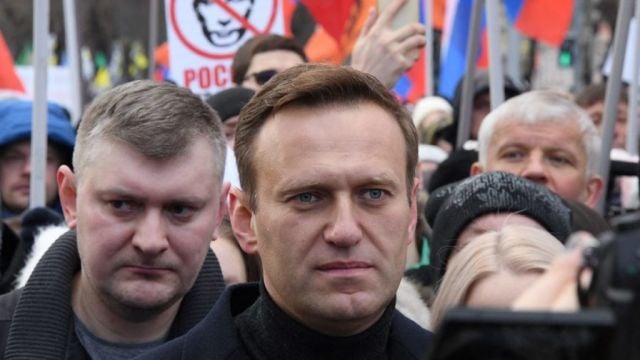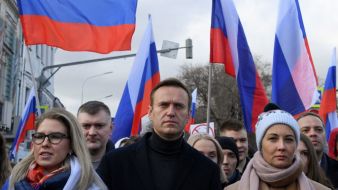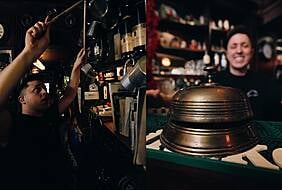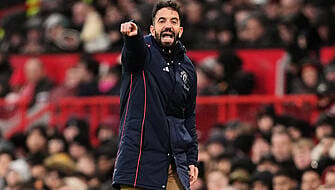Alexei Navalny, Russia's most prominent opposition leader, died on Friday after collapsing and losing consciousness at the penal colony north of the Arctic Circle where he was serving a long jail term, the Russian prison service has said.
Here's some information on one of Russian president Vladimir Putin's most vocal critics, and how he ended up in one of the country's highest security prisons...
Opposition leader
Navalny (47) became the leading figure among Russia's splintered opposition.
Supporters cast him as a Russian version of South Africa's Nelson Mandela who would one day be freed from jail to lead the country.
He earned admiration from many in Russian opposition circles for voluntarily returning to Russia in 2021 from Germany, where he underwent treatment for what Western laboratory tests showed was an attempt to poison him with a nerve agent in Siberia.
Rise to prominence
A former lawyer, Navalny rose to prominence with blogs which exposed what he said was vast corruption across the Russian elite, describing Russia as ruled by "crooks and thieves".
He participated in Russian nationalist marches in the 2000s. Calls for restrictions on immigration and criticism over what some viewed as his overly nationalist views prompted his expulsion from the liberal Yabloko opposition party in 2007.

He lampooned Putin's elite and exposed some of the opulence of the lifestyles of senior officials, using the internet and even drones to illustrate what he described as their vast holdings and luxury property.
When demonstrations against Putin flared in December 2011, after an election tainted by fraud accusations, he was one of the first protest leaders arrested.
Navalny long forecast Russia could face seismic political turmoil, including revolution, because he said Putin had built a brittle system of personal rule reliant on sycophancy and corruption.
What does the Kremlin say?
On Friday, the Kremlin said Putin had been informed of his death.
It dismissed Navalny's allegations of vast corruption and Putin's personal wealth. Navalny's movement is outlawed and most of his senior allies have fled Russia and now live in Europe.
Russian officials cast Navalny as an extremist who was a puppet of the United State's Central Intelligence Agency (CIA), which they say is intent on trying to sow the seeds of revolution to weaken Russia and make it a client state of the West.
Navalny was detained countless times for organising public rallies, and prosecuted repeatedly on charges including corruption, embezzlement and fraud. He said the accusations and convictions were politically motivated.
Navalny had an extra 19 years in a maximum security penal colony added to his jail term in 2023 in a criminal case that he said was designed to cow the Russian people into political submission.
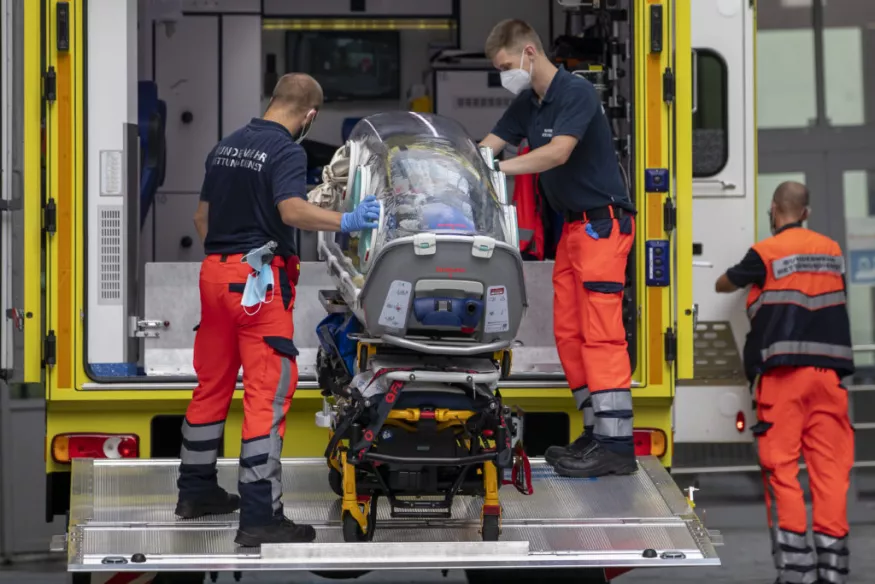
Poisoning
In August 2020, Navalny fell ill on a flight from Tomsk, in Siberia, to Moscow. The pilot made an emergency landing, saving his life, and Navalny was flown to Berlin, where he was treated for the effects of a neurotoxin that German military tests showed to be Novichok, a poison developed in the Soviet Union.
Putin dismissed a joint media investigation that said it had identified a team of assassins from Russia's FSB security service. "If someone had wanted to poison him, they would have finished him off," he said.
Family
Navalny's wife is Yulia. Their daughter is called Darya, and their son is called Zakhar.
-Reuters
